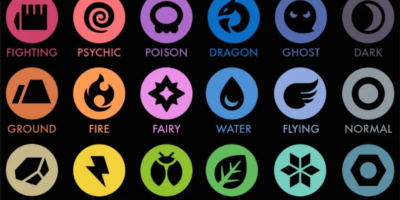There are roughly seven months until the class of 2015 graduates. I can’t speak for any of my esteemed peers but I am fairly sure many of us don’t know exactly what we are going to do. Co-op has been a blessing and a curse in that regard: good co-op experiences help you find out what you want to do. Bad co-op experiences make you want to curl up in your bed and consider becoming a freelance hobo artist ninja pirate.
Here’s five movies in which the protagonists didn’t have co-op to help them deal with the uncertainty in their lives.
The Hurt Locker (2008)
A bomb squad in Iraq (Jeremy Renner, Anthony Mackie, and Brian Geraghty) endure the last days of their rotation, during which their work-life balance leaves something to be desired.
Director Kathryn Bigelow has created a spellbinding and masterful portrait of men who defuse bombs and why they do it. Seargeant Sanborn (Mackie) does it because it’s his duty. Soecuakust Eldridge (Geraghty) does it because he doesn’t know what else to do. And Staff Seargeant James? He has a great line to his infant son: “The older you get, the fewer things you really love. And by the time you get to my age, maybe it’s only one or two things. With me, I think it’s one.” (Hint: he’s not referring to his son.)
It’s easy to write about how bad a movie is. It’s difficult to express how good a movie is, especially when it has as little plot as The Breakfast Club. There is nothing wrong with the movie. The suspense isn’t cheap. The performances are tightly wound and visceral. Nobody spells it out for you, but you know exactly what characters are doing, and why. The Hurt Locker is instinctual, intelligent, and forceful.
Zero Dark Thirty (2012)
A CSI analyst, Maya, (Jessica Chastain) searches for Osama bin Laden. (Spoiler alert: She finds him.)
What does it say about me that I like watching Jessica Chastain get her way within the CSI? Katheryn’ Bigelow’s followup to The Hurt Locker is not quite as intuitive or powerful as its predecessor, but Chastain carries the film on her shoulders first tentatively, when she arrives at her first interrogation session in a suit, and then like Atlas, as she tracks increasingly tenuous leads to bin Laden.
The problem is that the search for bin Laden took nearly ten years, or two and a half hours of screen time. There are periods where a whole lot of nothing happens except people getting frustrated, which frustrates the viewer. Watching Maya’s resolve run into brick walls and bureaucrats bogs down the film, particularly when that’s the only thing driving the movie. It also brings about the great tragedy at the end of the film: after having dedicated one’s entire adult life to finding and killing bin Laden, what do you do?
The Chronicles of Narnia: Prince Caspian (2008)
After defeating the White Queen in The Lion, the Witch, and the Wardrobe the Pevensies have a difficult time adjusting to civilian life in wartime London. When they’re whisked back to Narnia, it’s not much better: over a thousand years have passed and everybody they love is dead.
Still, there’s not much time to grieve: the Pevensies are dumped in the middle of a war of succession between Prince Caspian (Ben Barnes) and his evil uncle – of course it’s the evil uncle. Satisfying swashbuckling and clear-cut moral crises ensue, but Narnia is not the land of discovery and innocence anymore. What do you do when you can’t go home again? (Answer: cry a little at the end and listen to Regina Spektor during the credits.)
Up (2009)
Carl’s (Edward Asner) wife dies, leaving him bitter and reclusive. He embarks on a trip to the mythical Paradise Falls to fulfill a childhood promise to his wife by hoisting his house in the air with helium balloons. After he reaches his destination one presumes that he will commit suicide. However, Wilderness Explorer Russell (Jordan Nagai) becomes an accidental stowaway in the floating cottage while trying to “assist an elderly person”, throwing a wrench in Carl’s peaceful plans.
This being Pixar, there isn’t much I can say that you don’t know about Up, either by word or by experience. Bring tissues, yada yada yada, first five minutes are better love story than Twilight, blah blah blah, talking dogs, woof woof woof. It sounds saccharine, but I think that Up works despite its emotional content is because the protagonist is a crotchety old man, and it concerns memories rather than real-time peril. Crotchety old men – even animated ones shaped like a worn-down eraser – don’t talk about their feelings. But when they look sad, you get sadder than if Tiana or Rapunzel look sad. Plus, the idea of having lost someone you’d known for decades hits harder than the prospect of losing someone you’d only known for a few days. What can someone do after that kind of loss?
The Graduate (1967)
Benjamin Braddock (Dustin Hoffman) graduates from college without any clear purpose. He is seduced by Mrs. Robinson (Anne Bancroft) but falls in love with her daughter, Elaine (Katharine Ross).
Ben is, however, a pretty creepy guy. His relationship with Elaine is alternately naive and abusive. He also looks nothing like a recent graduate, since Dustin Hoffman was 30 years old at the time of filming.
Elaine herself is a basic bitch. She likes the zoo, blue eyeshadow, and probably long walks on the beach. She doesn’t like strip clubs and family drama. She is as interesting and manipulable as Wonderbread. I don’t see what Ben would want to marry that chick. More importantly, I don’t see why she’d want to marry Ben, who stalks her, slept with her mother, and took her to a strip club.
Speaking of her mother – ah, Mrs. Robinson! She is the only character who can even conceive of a life outside suburbia. She once had hopes and dreams beyond a backyard full of grandchildren and a career in the plastics industry! If Ben had any sense he would have continued having a no-strings-attached affair with Mrs. Robinson. Then I could have watched a plucky coming-of-age drama in which Ben reminds an older woman of innocent times, and she in turn ushers him into adulthood and wisdom before dying, like a darker, sexier Harold and Maude.
According to the American Film Institute, The Graduate is the 9th funniest Hollywood movie ever. Brylcream and rapey undertones aside, I thought The Graduate was an excellent movie, but a comedy? Hah. It was a tragedy through and through. Even when Ben and Elaine get together, they – and we, the viewers – know that something is missing. And we face an uncertain future, wondering if we’ve made the right decisions.




Leave a Reply